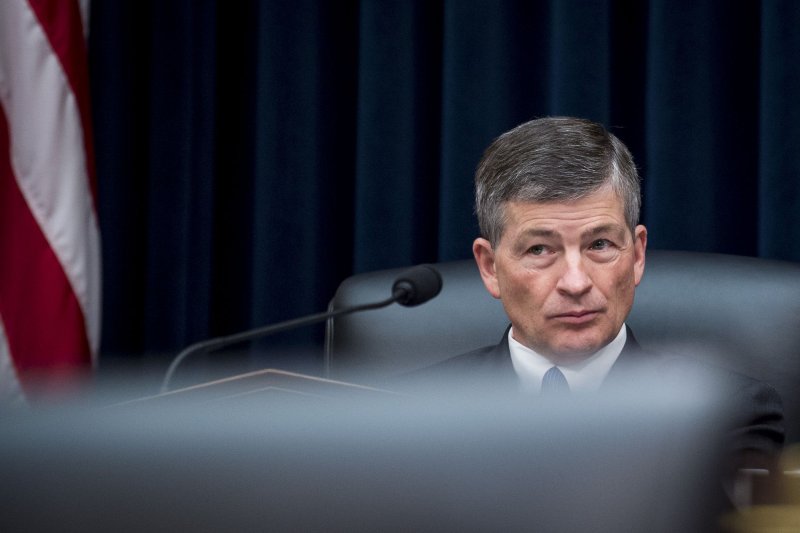Committee Chairmain Jeb Hensarling (R-TX) (pictured) says the section of Dodd-Frank repealed by the House of Representatives gives some state-owned companies an edge. Photo by Pete Marovich/UPI |
License Photo
Feb. 2 (UPI) -- Further concerns about possible corruption in the U.S. energy sector emerged after the Republican-led House moved to axe disclosure rules.
The Republican-led House of Representatives voted along party lines to repeal a section of the Dodd-Frank Act that required energy companies like Chevron, Exxon Mobil and others to disclose taxes and fees paid to governments.
Financial Services Committee Chairman Jeb Hensarling, R-Texas, said the rule, imposed last year, gives state-owned companies in China and Russia an edge.
"The economic opportunities of millions of struggling Americans aren't helped by top-down, political regulations that give foreign companies an advantage over American public companies," he said in a statement.
Concerns about skirting Dodd-Frank rules emerged last week when Transparency International expressed fears because incoming U.S. Secretary of State Rex Tillerson, the former head of Exxon, worked against disclosure rules in his capacity as an official within the American Petroleum Institute, a domestic lobby group.
The group's Americas director Alejandro Salas told UPI the transparency rules could work to counter "secret sweetheart deals" between energy companies and governments around the world.
Adding its voice to the debate, the Project On Government Oversight said in an emailed report that the API's efforts to gut Wall Street reform provisions were "particularly galling" and called for the industry's groups removal from the U.S. Extractives Industries Transparency Initiative.
Rep. Maxine Waters, D-Calif., the ranking member of the finance committee, said supporters of the watering-down of Dodd-Frank were playing loose with the facts.
"Many foreign companies must report under the U.S. rules, including a number of state-owned oil companies such as China's Petrochina and Sinopec, and Brazil's Petrobras," she said.
The transition team for Donald Trump in December pledged to eliminate the Dodd-Frank Act and replace it with policies it said would be more beneficial to job creation. Stephen Comstock, the director of tax policy for the API, said the House move deserves praise.
"[The] House vote is a necessary step by Congress to establish sensible regulations that balance increasing transparency without diminishing our industry's competitive advantage,' he said.















